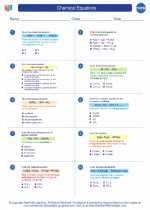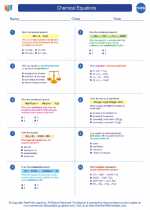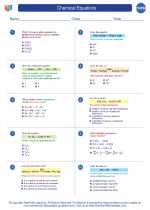Time
Time is a fundamental concept in physics and plays a crucial role in various scientific disciplines. In the field of chemistry, time is an essential component in understanding reaction rates, equilibrium, and other kinetic processes.
Units of Time
The standard unit of time in the International System of Units (SI) is the second (s).
Time in Chemical Reactions
In chemistry, time is used to measure the rate of chemical reactions. The rate of a chemical reaction is the change in concentration of reactants or products per unit time.
Factors Affecting Reaction Time
Several factors can affect the rate of a chemical reaction, including:
- Concentration of reactants
- Temperature
- Presence of a catalyst
- Surface area of solid reactants
Studying Time in Chemistry
When studying chemical reactions, it's important to consider the time scales involved. Some reactions may occur rapidly, while others may take hours, days, or even longer to reach completion. Understanding the time frame of a reaction is crucial for experimental design and data analysis.
Experimental Techniques
Chemists use various experimental techniques to study the time dependence of chemical reactions. These techniques may include:
- Monitoring changes in concentration over time using spectroscopy or titration
- Measuring reaction rates at different temperatures
- Using kinetic modeling to understand reaction mechanisms
Applications of Time in Chemistry
Understanding the time dependence of chemical reactions has important practical applications in fields such as:
- Drug development
- Food chemistry and preservation
- Environmental chemistry
- Materials science
Summary
Time is a critical variable in the study of chemical reactions. It is used to measure reaction rates and understand the kinetics of chemical processes. By studying the time dependence of reactions, chemists can gain insights into reaction mechanisms and develop practical applications in various industries.
[Time] Related Worksheets and Study Guides:
.◂Chemistry Worksheets and Study Guides High School. Chemical Equations

 Worksheet/Answer key
Worksheet/Answer key
 Worksheet/Answer key
Worksheet/Answer key
